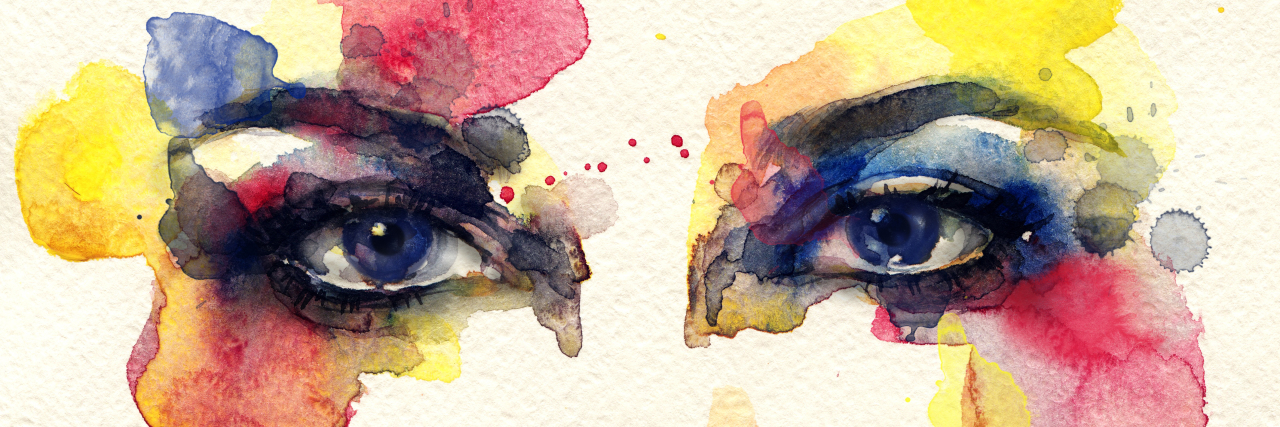Please Believe Those With Chronic Illness When We Share Our Realities
Before I was officially diagnosed with myasthenia gravis but experiencing some of the symptoms that characterize this disease, I expressed my concern for my health to a few people, as I knew something was just “off.” The responses varied, but for years, I struggled to get people to believe what I was going through. Unbeknownst to me, convincing individuals of my lived experience at this time was only the beginning of a long road ahead, paved with discrimination, stereotyping and judgment.
The official diagnosis provided validation, however, to some people, “myasthenia gravis” was just words on a piece of paper. For me, it was my everyday life and still is.
Living with an invisible illness means constantly having to prove your truth to others. It can be utterly exhausting, always defending something you know and feel with such certainty. Some of you may be wondering, “Why do you feel like you have to do this? Why do you care what others think? Why is it so important to get others to understand this part of your life?”
Promoting this understanding is crucial to my daily living. I need others to realize the impact this illness has in all the different areas of my life in order to be an accepted friend, family member, colleague and contributing member of society. More importantly, this illness is larger than my own experience, larger than a medical diagnosis, and more than just weakness within the muscles of my body.
Illness can mean losing friends and people you care about because they think you’re lying or lazy, or they’re tired of you canceling plans on them last minute.
Illness can mean sacrificing incredible job opportunities you are passionate about because you have had too many employers that are unwilling or unable to accommodate you in the workplace.
Illness can mean revealing the most vulnerable thing about you to professors and administrators because you need adaptations in and outside of the classroom in order to be a successful student.
Illness can mean having to utilize the elevator or a disabled parking spot and people patronizing you because they cannot see what’s happening within your body.
Illness can mean electing to forego social events because you fear you won’t be able to keep up with others, or you cannot afford to spend energy on something that sometimes seems frivolous in comparison to work, school and your health.
Illness can mean postponing the start of a family as taking care of your health is hard enough, let alone taking care of children that depend on you.
Illness can mean prioritizing activities of daily living, knowing your to-do list will never be completed.
Illness can mean people questioning and challenging the existence and severity of your illness when they have no business doing so.
Illness can mean a life of encounters filled with shame, guilt, pain, loss, scrutiny, accusation and misunderstanding. And when such encounters occur, we are left feeling unworthy when all we want is a life filled with freedom, choice, joy, success, acceptance, dignity and love.
What hurts the most is meeting people who believe they have the authority to have an opinion about my lived experience. It is the off-handed comments that reiterate my frustration with the societal understanding of illness and disability, such as: “Well at least it’s not cancer,” “you don’t look sick,” “you’re too young to be tired,” or, “myasthenia gravis is actually relatively manageable and people can live pretty normal lives with this diagnosis.” On some level I can appreciate the hint of empathy weaved within these statements. However, in all honesty, I feel like I am getting gut-punched every time I hear such sentiments.
What is the intention behind these statements? Why is there a need to compare or rate illnesses and stack them up against each other? Why is there a need to make light of so many people’s situations? Is it to make patients feel like “things could be worse?” Or are those making these comments trying to mitigate an uncomfortable topic, as illness can sometimes be taboo to discuss? Why do others feel the need to appraise the reality of my illness when they have absolutely no idea what it feels like to live with my MG?
Being criticized and ridiculed by my own community, other chronically ill people, was the last straw for me. I recently participated in a social media opportunity that allowed me to share my experience living with myasthenia gravis. As I always do, I made note that my experience is solely my own, and I only reveal my story in the hope people can feel comforted, cared for and not alone. For the most part, people embraced my vulnerability and appreciated my willingness to share my story and promote awareness for this disease. But there were a select few who felt the need to belittle me and depreciate my journey with MG.
I was shocked, but I took the opportunity as a learning experience. Not everyone is going to like me, understand me or agree with me. I’m OK with that, however I do not accept the unwarranted denial of my chronic illness by others.
This is why I care. This is why I am committed to advocating for a world with a little bit more respect, tolerance and equality. I’m not naïve. I know people are allowed to have an opinion, but my life with chronic illness isn’t here to satisfy your expectations.
We all have our own paths in life. Our routes may look different, but we are all trying to get to the same destination. Whichever course in life you decide, choose one that propels others forward, not one that sets others back.
Getty image by Anna Ismagilova.

